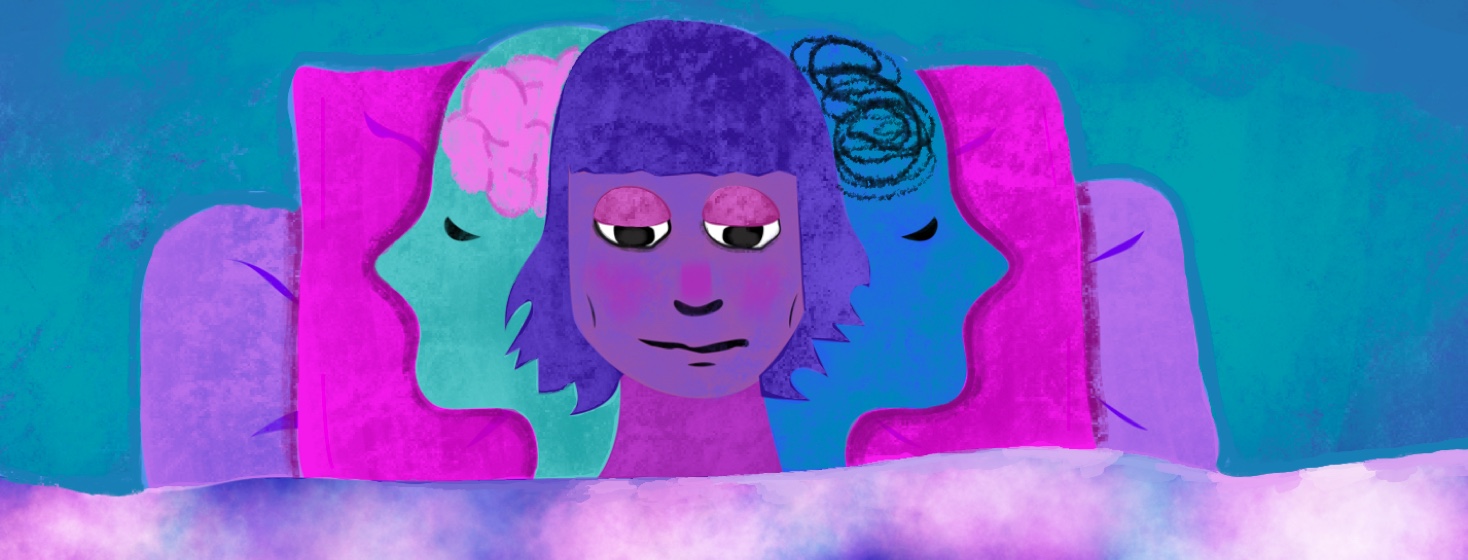Is Insomnia Psychological or Biological, or Both?
I hold a controversial opinion about insomnia. It's an opinion formed by my experience as a person with insomnia and my professional experience as a person who treats people with insomnia, combined with a view on the longest-lasting, most effective treatments used for chronic insomnia: cognitive behavioral therapy for insomnia.1
Insomnia is different than other sleep disorders
Insomnia is so unique among all other sleeping disorders in that for the vast majority of people, it is psychobiological and has a unique psychological conditioning element to it.
In contrast, other sleeping disorders seem to be more medical, though people can frequently also have insomnia alongside them. The medical treatments that treat those conditions can resolve their symptoms but won't affect insomnia.
How does this conditioning element work?
Predisposing factor
Using a model for insomnia development to demonstrate, people will commonly have some degree of predisposing factor that makes them more susceptible to insomnia than others, such as an anxiety disorder or a personality trait like perfectionism.2
Precipitating event
Then, a precipitating event happens – something disrupts our sleep. This kind of experience happens to everyone: We experience upset, excitement, or strong interest in something, disturbing our sleep.
Perpetuating factors
Some people return to sleeping as soundly as they did before. But others, such as those with more predisposing factors, can sometimes go on to develop insomnia due to what we call "perpetuating factors." These factors are commonly worries about the sleeplessness itself and the behavioral habits that stem from them.
A cycle of sleeplessness and anxiety
Though these behaviors and concerns are intended to help "fix" the sleep problem, they often make it worse. We start to spend more time in bed awake and worried and trying to "catch" sleep. Meanwhile, we train ourselves to be awake and concerned in bed.
These habits create a weaker relationship between sleep and the place we sleep. This further erodes our sleep and creates a vicious circle of sleeplessness and anxiety. This can result in sleeping problems that go on long after that precipitating event has passed.
Behaviors matter
Indeed, some people have insomnia for other reasons. Still, I tend to think that the large majority of people have insomnia due to a manifestation of sleep-related anxiety and the behaviors we develop as a result, rather than their insomnia being an organic sleeping disorder in and of itself.
There is some evidence for this, as well. Insomnia can be "induced" in healthy sleepers to study medicines by extending the time they are in bed to well beyond the time they are sleeping.3
This echoes what people with insomnia frequently do to try to "catch" extra sleep. Plus, restricting time in bed to the time someone can sleep can reverse insomnia and is one of the most evidenced behavioral sleep medicine interventions for insomnia.1
Does this sound controversial to you? Why do you feel that way? Please share your thoughts with our community!

Join the conversation